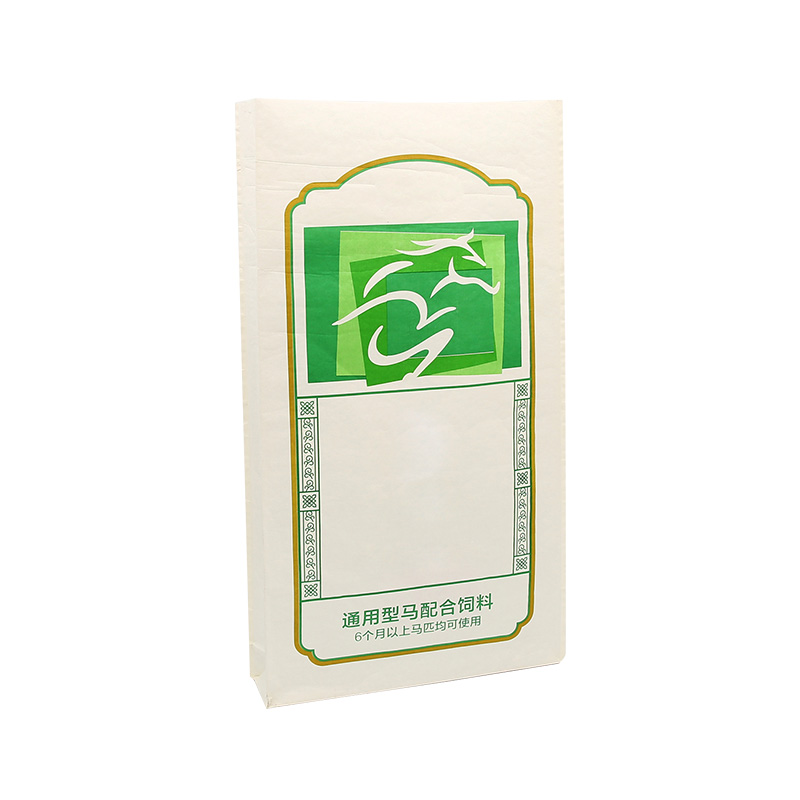Biodegradable materials in bulk packaging are gaining attention as they provide practical solutions for transportation, storage, and distribution while leaving a smaller ecological footprint.

Among the available options, PP woven fertilizer bags remain a widely used choice in agricultural and industrial applications. These bags are durable, flexible, and capable of handling large volumes of bulk materials, such as grains, fertilizers, and other granular products. While PP woven bags are not inherently biodegradable, ongoing innovations have allowed for the integration of eco-friendly coatings and treatments to enhance their degradability over time. This development allows industries to retain the mechanical strength and reliability of PP woven bags while addressing environmental concerns.
For applications where biodegradability is a priority, biodegradable bags for packaging offer a viable alternative. These bags are made from materials that naturally decompose under specific environmental conditions, such as exposure to soil, moisture, or heat. Biodegradable packaging is particularly relevant for industries where single-use bags are prevalent, such as agriculture, food processing, and shipping. Using biodegradable bags for packaging can significantly reduce the accumulation of non-degradable waste and promote sustainable practices throughout the supply chain.
Another popular option in the sustainable packaging sector is kraft shipping bags. Kraft paper, known for its strength and flexibility, provides an environmentally conscious alternative for bulk packaging. These bags are often reinforced to carry heavy products and can be treated with water-resistant coatings to improve durability during transport. Kraft shipping bags can also be combined with biodegradable linings to enhance functionality, allowing industries to meet both performance and environmental standards. The versatility of kraft shipping bags makes them suitable for a wide range of products, from fertilizers to chemicals and consumer goods.
The adoption of biodegradable materials in bulk packaging is not limited to environmental benefits alone. Industries also experience operational advantages such as reduced waste management costs and easier compliance with evolving regulations on packaging materials. For instance, some regions have introduced restrictions on single-use plastics, encouraging manufacturers and distributors to explore alternatives such as biodegradable bags for packaging and reinforced kraft shipping bags. By adopting these materials, companies can align with regulatory requirements while demonstrating a commitment to sustainable practices.
Integration of biodegradable materials into existing packaging solutions requires careful consideration of factors such as load capacity, shelf life, and storage conditions. While PP woven fertilizer bags remain an essential tool in bulk material handling, combining them with biodegradable inner liners or coatings can create hybrid solutions that balance durability and eco-friendliness. Similarly, biodegradable bags for packaging can be designed to accommodate different weights and sizes, making them adaptable to various industries. Kraft shipping bags, when reinforced or treated appropriately, can carry substantial loads without compromising the degradable properties of the material.
The future of bulk packaging lies in the continued development and adoption of biodegradable materials. As consumers and industries become more conscious of environmental impact, there is a growing demand for solutions that reduce waste without sacrificing functionality. Whether through PP woven fertilizer bags enhanced with biodegradable components, fully biodegradable bags for packaging, or sturdy kraft shipping bags, businesses are finding ways to meet operational needs while supporting sustainability. Collaboration between manufacturers, suppliers, and regulatory bodies will further promote the development of packaging materials that are both practical and environmentally responsible.
Biodegradable materials in bulk packaging represent a significant step toward more sustainable industrial and agricultural operations. By incorporating options such as PP woven fertilizer bags with eco-friendly treatments, fully biodegradable bags for packaging, and versatile kraft shipping bags, companies can improve their environmental profile while maintaining efficiency in handling, storage, and transport. The transition to sustainable bulk packaging reflects a broader trend toward environmentally responsible production and distribution, offering benefits to industries, consumers, and the planet alike.


 English
English Español
Español عربى
عربى
